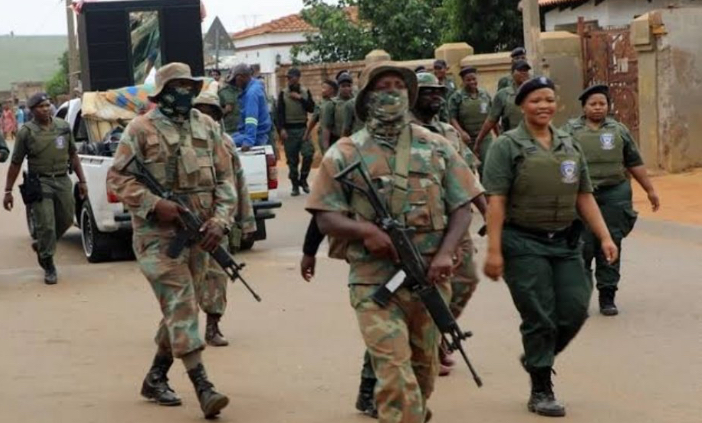
The #justiceforCwecwe movement continues and there’s always an eyebrow raising situation going on and currently it is the deployment of SANDF.
The deployment of the South African National Defence Force (SANDF) at the #JusticeForCwecwe march in Matatiele, Eastern Cape, has sparked controversy and raised questions about the state’s handling of public demonstrations.
The march, which aimed to raise awareness about the alleged rape of a seven-year-old girl at Bergview College in October 2024, was described as peaceful, yet the presence of military personnel has drawn mixed reactions from protesters and observers.
Many have expressed concern over the use of military personnel at a peaceful protest, citing the need for high-level authorisation for domestic operations.
The GOOD Party, for instance, was shocked by the deployment, questioning the necessity of SANDF presence at the demonstrations.
The #JusticeForCwecwe march was part of a nationwide movement seeking justice for the young girl. Thousands of people participated in similar marches across the country, including in East London, where protesters wore black and sang in unison, demanding justice for Cwecwe.
The reasons behind the SANDF deployment and the full details remain unclear. Typically, such deployments require authorization from the President for domestic operations.
The SANDF’s presence has sparked debate, with some wondering if it was necessary to involve the military in a peaceful protest.
The incident has raised questions about the state’s handling of public demonstrations and the role of the SANDF in domestic operations. As the situation unfolds, many are left wondering about the implications of this deployment and the potential consequences for the protesters and the community.
The SANDF’s involvement has also sparked concerns about the militarization of public protests and the potential for escalation.
Also see: Principle shares how Cwecwe case impacted personal life




